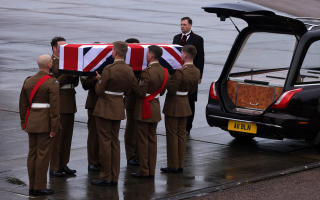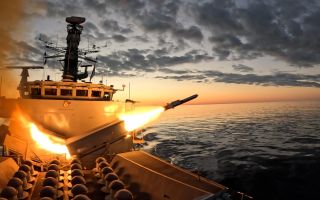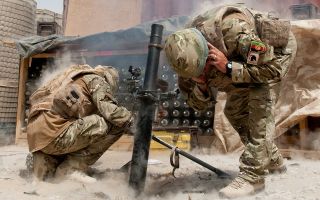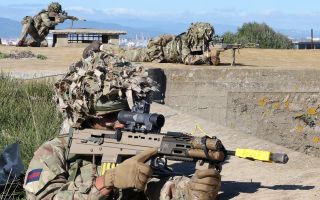Tri-Service
Work Begins On UK Nuclear Subs Of The Future
Work has begun on the next generation of British submarines to carry Trident nuclear missiles.
When completed, the Successor-class subs will be the most advanced of their kind in the world.

Last year saw groundwork begin on Barrow's £130 million submarines' Central Yard Complex – the place where the new submarines are being built.
The four subs on order will replace the current Vanguard-class, with the first entering service in the early 2030s.
More: 'Trident: In Numbers'
Just days ago the Defence Secretary Sir Michael Fallon announced £1.25 billion to begin the first building phase, having already pledged to increase funding for the programme earlier this year.
Now, he's witnessed the cutting of the first steel, opening a new chapter for Britain's nuclear deterrent capability.
Artist's impression of the Successor-class sub
The Defence Secretary has also toured the Devonshire Dock Hall where construction continues on the last batch of Astute-class hunter-killer submarines - the fourth, fifth and sixth of their kind.
The building programme has come under fire in some quarters, however, after a French steel company was awarded a contract to supply metal for the sub hulls.
The Mirror reported this as "a betrayal of British workers". The MoD, meanwhile, said:
"The Successor programme represents billions of pounds of investment in thousands of British jobs across hundreds of firms from Scotland to the South East. We source British steel where possible but there was no viable UK bid for this part of the build because no British firm produces the specialised steel needed. We are in an early stage of the programme but there will be British steel in the new submarines and further opportunities for UK suppliers to bid."
Successor-class subs are designed for stealth, as mobile platforms from which to launch Trident at sea.

The cost of the programme is expected to run to £31 billion over its entire 30-year lifetime (including adjustments for inflation over that time).
Click below to find out more about Britain's new subs...











